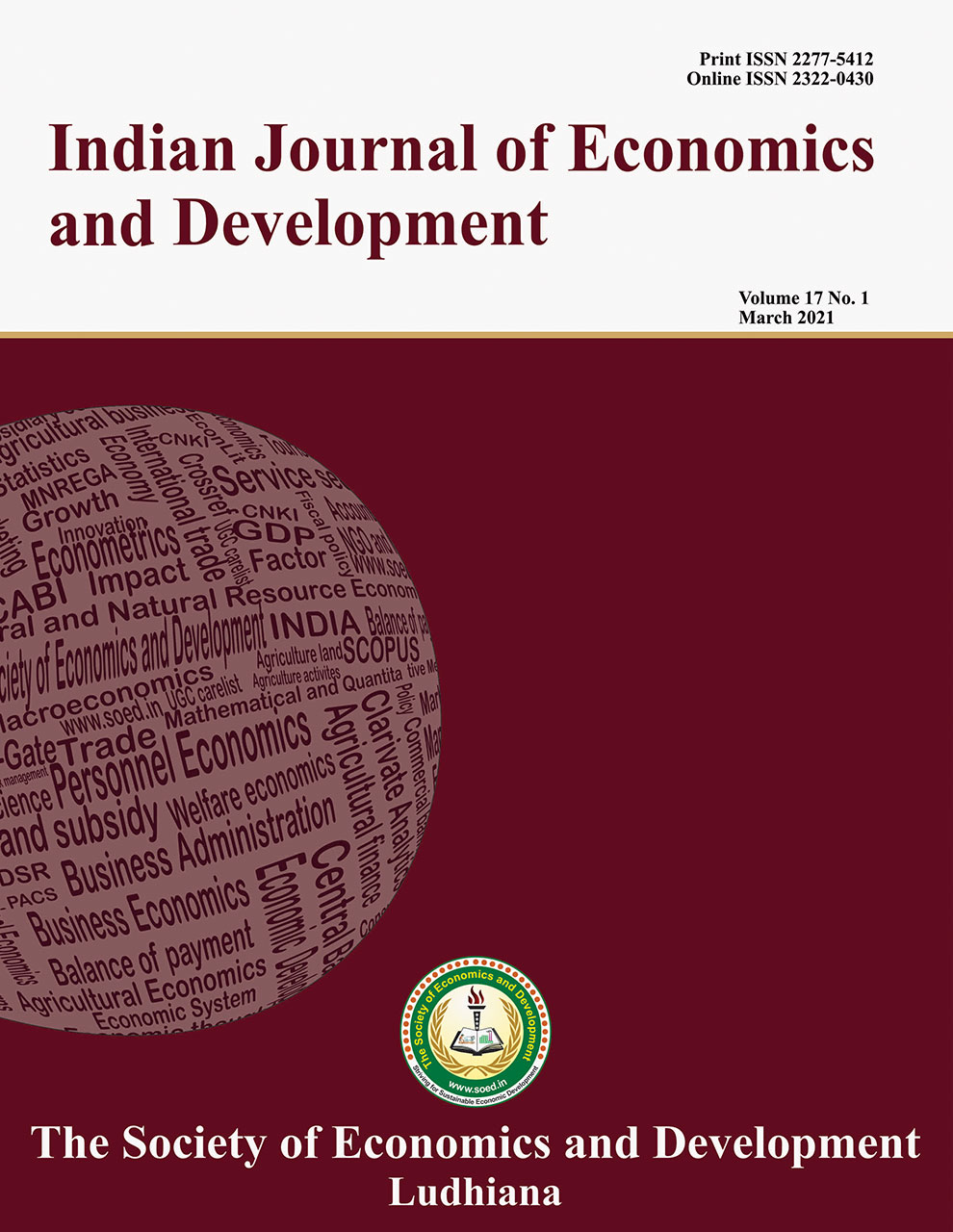Financial Inclusion in India-A Review

Price: ₹ 1000
Author: Kesari Singh1 and Nitin Gupta2
Author Address: 1Professors, and 2Assistant Professor, Faculty of Management Sciences and Liberal Arts, Shoolini University of Biotechnology and Management Sciences, Vill. Bajhol, Solan-173229 (H.P.)
Keywords: Financial inclusion, financial literacy, financial services, money lenders.
JEL Codes: D14, G21, R51.
Abstract
Financial inclusion has been widely recognized as an engine of economic and social development. World Bank group laid stress on the role of financial inclusion in poverty reduction and boosting shared prosperity. Increasing the importance of financial inclusion for inclusive growth has gained the attention of researchers and academicians across the world. This review deals with the findings of research studies conducted on the extent and status of financial inclusion in India. A review of empirical findings revealed that despite many initiatives taken jointly by the Government and Reserve Bank of India, financial services outreach was not been very satisfactory. People particularly in rural areas, still did not have access to banking services. Evidence of gaps in financial inclusiveness in the country could also be perceived from the review. Lack of awareness and financial literacy, high cost of financial services, continued dependence of rural people on moneylenders, regional disparities in terms of outreach, etc. emerged as some of the critical issues. Hence, the study suggested that some concrete steps need to be taken by the government to improve the status of financial inclusion
Description
Indian Journal of Economics and Development
Volume 16 No. 2, 2020, 278-284
DOI: https://doi.org/10.35716/IJED/19016
Indexed in Clarivate Analytics (ESCI) of WoS
Kesari Singh1 and Nitin Gupta2
1Professors, and 2Assistant Professor, Faculty of Management Sciences and Liberal Arts, Shoolini University of Biotechnology and Management Sciences, Vill. Bajhol, Solan-173229 (H.P.)
Corresponding author’s email: kesari@shooliniuniversity.com; kesarisingh16@gmail.com



